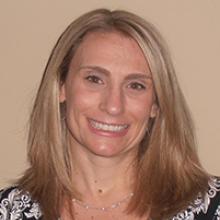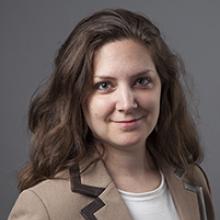Simulated Instruction in Mathematics Professional Development Study (SIM PD Study)
Research suggests that teachers’ facilitation of student-driven discourse in mathematics provides crucial opportunities for students to develop a strong understanding of the mathematics concepts. However, teacher-led lectures are a more common approach to instruction. Professional learning opportunities focused on helping teachers develop skills to guide student discourse, including questioning strategies, helps bridge this gap.
The Simulated Instruction in Mathematics Professional Development Study, or SIM PD Study, was a pilot of a new PD program being conducted by AIR, with funding from the Charles and Lynn Schusterman Family Foundation. SIM PD offered opportunities for teachers in grades 4-7 to:
- Learn about questioning strategies and facilitation of student discourse to promote engagement and understanding of math concepts; and
- With support from a coach, practice implementing those approaches using a mixed-reality classroom.
To examine implementation of the program and its impact on teachers’ instruction, we randomly assigned 16 partnering schools to either participate in SIM PD or continue with business-as-usual (BAU) professional learning during the 2018-19 school year. The implementation team at AIR trained either school- or district-based math coaches to deliver SIM PD to the participating teachers in the PD group. To answer our research questions, we collected documentation of SIM PD activities during implementation and video-based observations of math lessons from both groups of teachers.
Key Findings
The implementation analyses found that the program was delivered as intended. Each school completed the intended program hours, and coaches reported completing over 95% of the segments within each PD activity. Teachers reported finding the program useful for reflecting on and improving their instruction.
The impact analyses found large, positive improvements in instruction among teachers participating in the PD. These improvements in instruction were sustained into the next school year after teachers participated in the PD. While this study represents an initial pilot, these results suggest that the program offered a promising use of the classroom simulation technology to support teacher development of questioning strategies and facilitation of student discourse.
Overview of SIM PD
The 10-hour SIM PD program is organized into two modules—one for questioning strategies, and one for facilitating student discourse. Each module includes an introductory workshop to learn about the instructional strategy that is the focus of the module, opportunities to practice the instructional strategy in the simulated classroom with other teachers and individually, and time to reflect on the experience as a team. Study-trained, local coaches deliver the PD activities to teachers within the same school.
Module One: Questioning Strategies
Activity 1: Introductory workshop, 120 minutes
Activity 2: Group practice in simulated classroom, 90 minutes
Activity 3: Individual practice in simulated classroom, 60 minutes
Activity 4: Group follow-up discussion and reflection, 45 minutes
Module Two: Facilitating Student Discourse
Activity 5: Introductory workshop, 120 minutes
Activity 6: Group practice in simulated classroom, 60 minutes
Activity 7: Individual practice in simulated classroom, 60 minutes
Activity 8: Group follow-up discussion and reflection, 45 minutes
Introductory Workshop
During the introductory workshop, teachers first complete a math task or discuss a classroom scenario to motivate the instructional strategy that is the focus of the module (questioning or discourse). Then, they learn about the components and analyze a video recording or transcript of instruction that illustrates the focal strategy. At the end of the workshop, teachers prepare to practice the focal strategy in the simulated classroom.
Practice – Group and Individual Simulation
Teachers practice implementing the focal instructional strategy with support from their coach using the simulated classroom, first as team and then individually. Throughout, teachers can stop, ask their coach or other teachers for advice and start over again. Coaches pause activity periodically to ask teachers to reflect on their progress reaching the math goal of the activity and implementing the instructional strategy.
See a SIM PD simulation in action
Professional Learning Community (PLC)
After teachers have practiced the focal strategy in the simulated classroom, they meet as a school-based PLC to reflect on their experience. The coach also guides a discussion to identify next steps for applying what they have learned in the PD in their actual classrooms.
Cutting-Edge Technology for Classroom Simulation
The simulated classroom technology was developed at the University of Central Florida and is available for research and commercial use through Mursion, AIR’s partner during this pilot study. Teachers from anywhere can use a computer to connect with a simulated classroom via an online video conference platform (e.g., Zoom) to view and interact with a set of five student avatars. A trained simulation specialist behind the scenes, who is not visible to the teacher, operates the avatars. The insertion of a human in the mixed-reality setting allows for realistic and wide-ranging teaching experiences for teachers. Teachers have an authentic opportunity to rehearse ambitious changes in instruction in a low-stakes environment.

